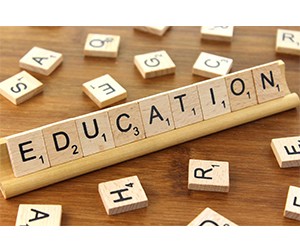Dictionary users want to be able to find the words they are searching for and get enough information about those words to make their search worthwhile. But how do dictionary-makers select words and decide how much usage information to include in each dictionary?
Space has always been a dictionary-maker’s biggest enemy. Invariably, dictionaries either have too many words, with too little information about them to be helpful - so, are essentially wordlists rather than dictionaries - or they’d have too few words and run the risk of a user not finding what they’re looking for.
While digital dictionaries have overcome this problem, South Africa’s education system still largely relies on printed resources.
Oxford University Press South Africa, which publishes some of the most widely-used dictionaries in South African schools, has an innovative and scientific way of identifying the words that learners really need to look up in a dictionary.
Using cutting-edge techniques and technology, Oxford analyses large electronic collections of texts – called corpora - and extracts the key words that learners really need in order to understand their school textbooks and literature. These words are treated comprehensively in Oxford’s school dictionaries, most recently in the new edition of its bestselling Oxford Afrikaans-Engels English-Afrikaans Skoolwoordeboek School Dictionary.
Corpora provide indications of how language is used in general – for example, in newspapers, works of fiction, and even in government communication.
In making the Oxford Afrikaans-Engels English-Afrikaans Skoolwoordeboek School Dictionary, Oxford also built smaller corpora, which contained its own textbooks for a variety of subjects in English and Afrikaans.
A comparison of textbooks and texts from general language revealed exactly which words or terms are used in the school curriculum. These were then included in the dictionary in addition to the most frequently used general English and Afrikaans words.
This has never been done before in a bilingual school dictionary for Afrikaans and English. But corpora do more than simply provide the list of headwords to include in a dictionary.
“We also look at how each word is used in the different collections of texts, and the sentences from those texts then provide the basis for the example sentences we include in our dictionary,” explains Dr Phillip Louw, Dictionary Content Development Manager at Oxford University Press South Africa. “And those natural, relevant example sentences really are the holy grail of a multifunctional dictionary such as the Oxford Afrikaans-Engels English-Afrikaans Skoolwoordeboek School Dictionary.”
“They not only help learners to find and understand the correct translation, but also show them how to use the translation in their own speaking and writing.”
For Oxford, diversity and relevance were front of mind when choosing example sentences for this dictionary. “We were very mindful of the fact that we need to deal with issues of gender, race and disability in a sensitive way, while staying relevant to the current realities of South African learners,” continued Louw.
“The example sentences in the Oxford Afrikaans-Engels English-Afrikaans Skoolwoordeboek School Dictionary reflect how words are used today, both in everyday conversations and in the curriculum.”
Example sentences include:
- “Jy spaar baie water as jy stort eerder as om te bad. / You save a lot of water if you shower rather than having a bath.”
- “Aan die einde van die Ramadaan-vastyd vier Moesliems Eid. / At the end of the Ramadan fast Muslims celebrate Eid.”
- “Die moderne dieet bevat te veel verfynde koolhidrate. / The modern diet contains too many refined carbohydrates.”
The second, extended edition of the Oxford Afrikaans-Engels English-Afrikaans Skoolwoordeboek School Dictionary (ISBN 978 0 19 905468 8) is available at all good bookstores at a recommended retail price of R139.95, the same price as the best-selling first edition. The dictionary includes 3 000 more words than the first edition, pronunciation guidance throughout, illustrations for difficult concepts or words, and 48 pages of useful extras, including dictionary activities, writing exemplars and a brand new mini-grammar to support reading, writing and speaking.






